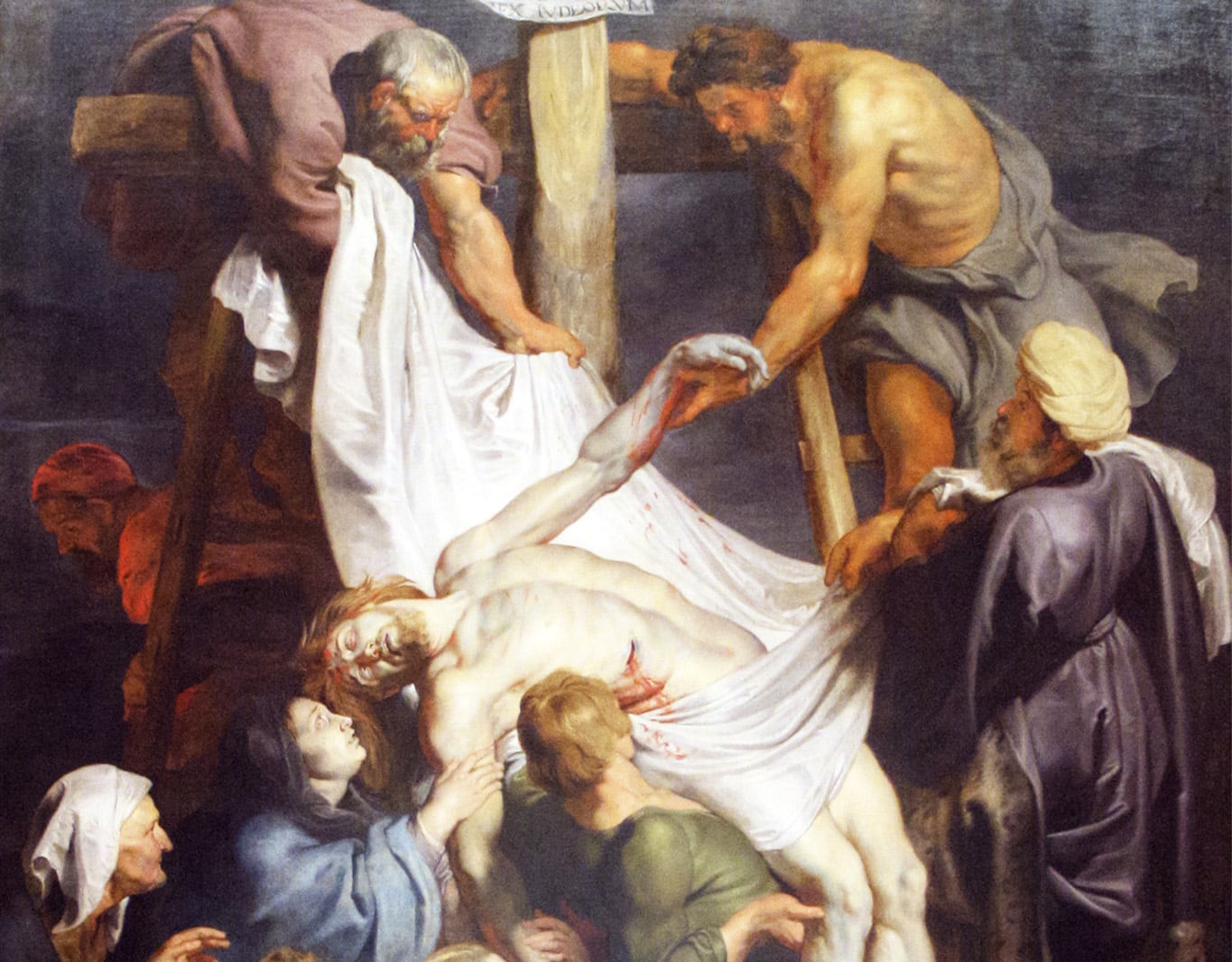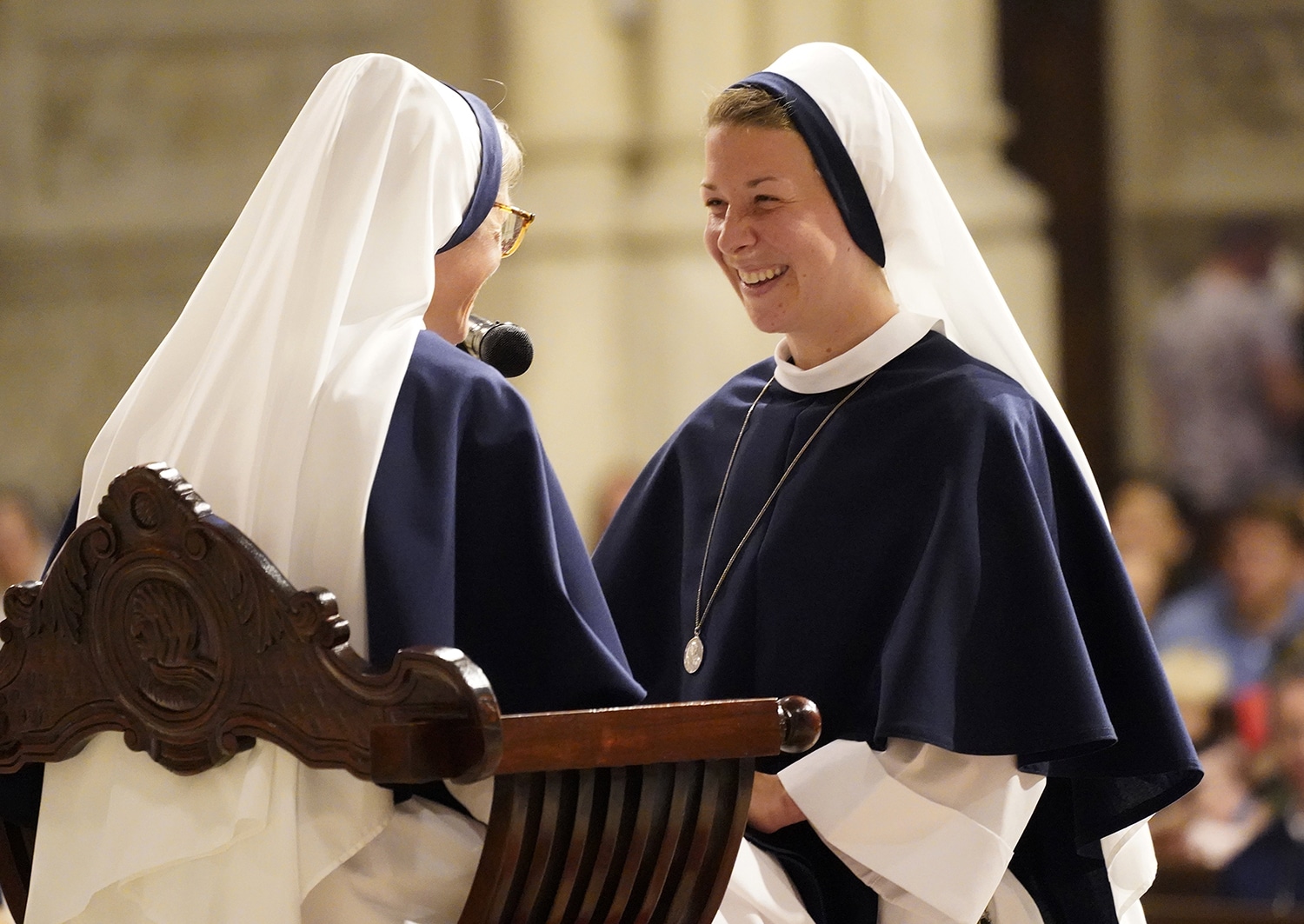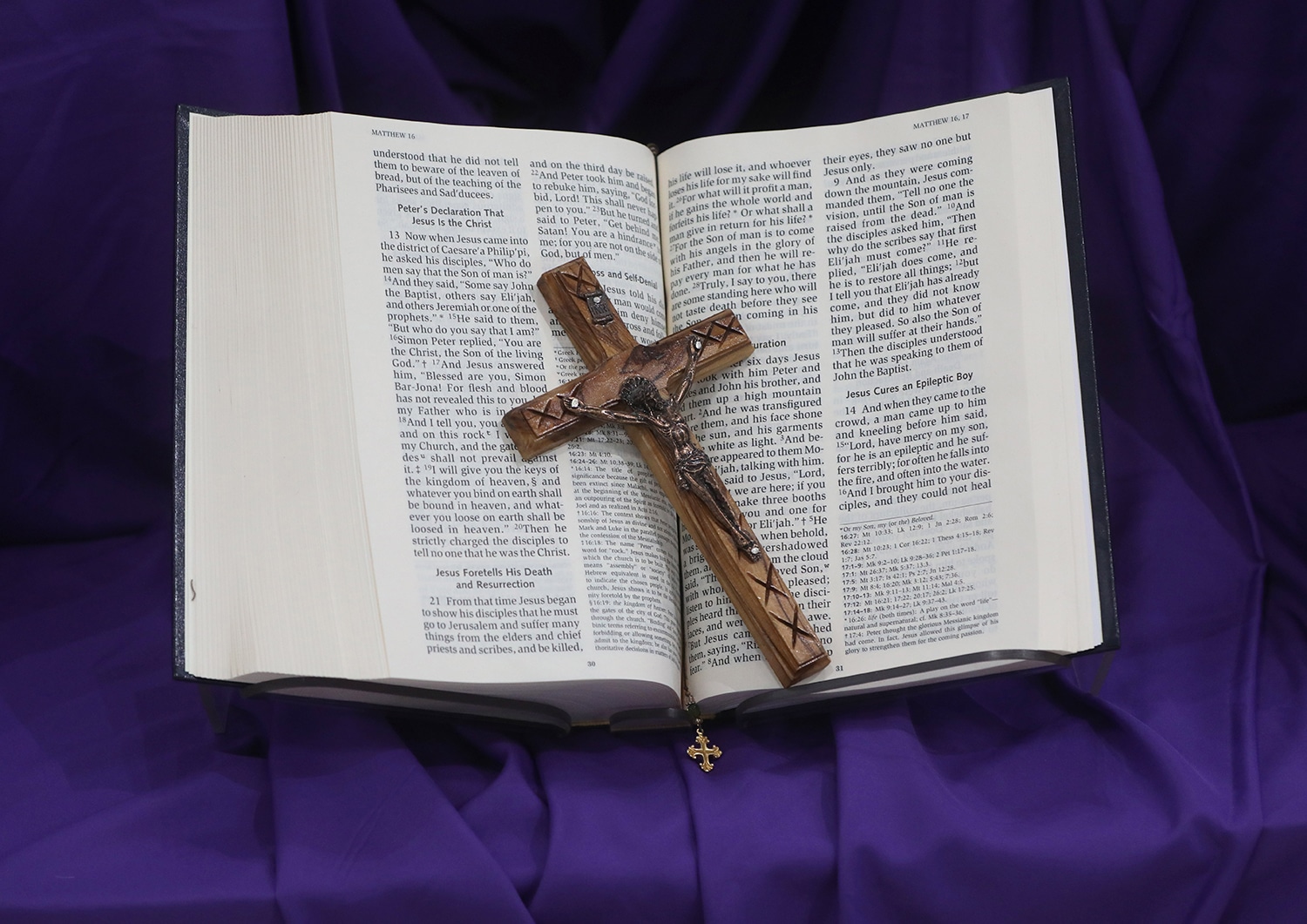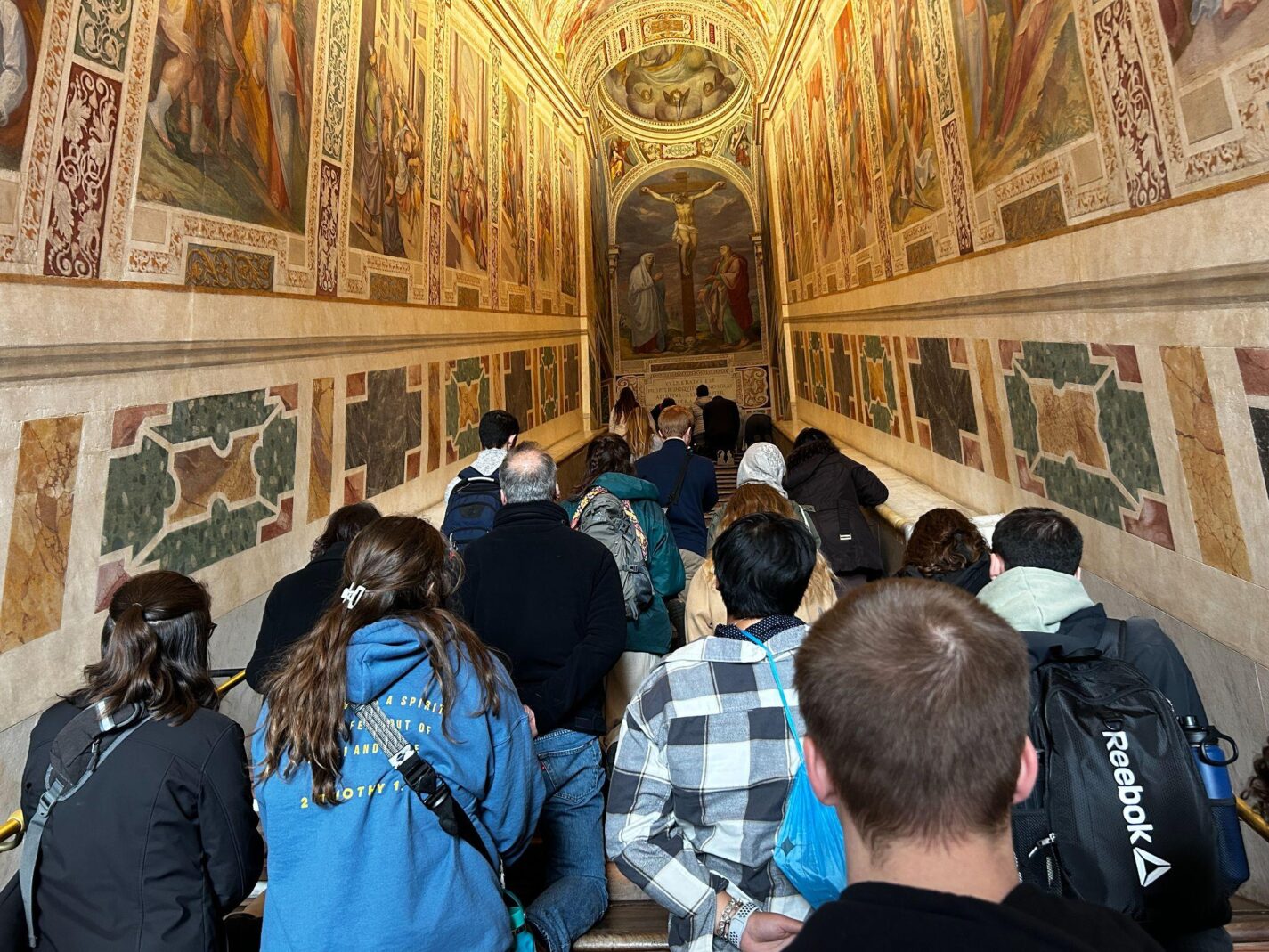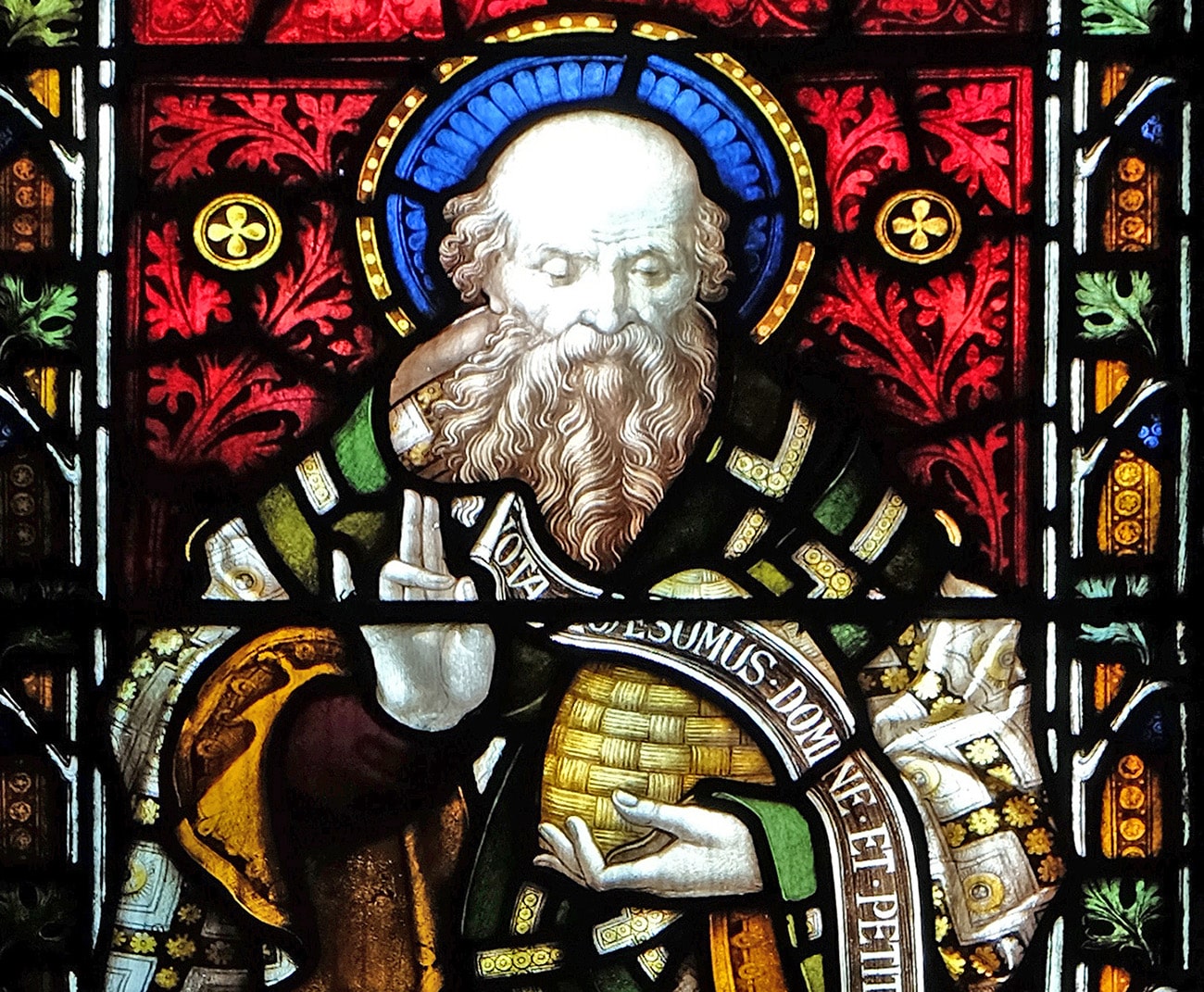In the writings of Pope St. John Paul II, we find a principle he often calls the Law of the Gift. He formulated it in various ways in different writings, but one might state it as follows: “God gave us our whole being so that we might give our whole being back to God.”
“Father, into your hands I commend my spirit.” (Lk 23:46)
The Seventh Last Word
The principle tells us, in summary fashion, the origin and end of our lives. You and I and every human being come from God. Each of us has received from God everything we have and are: spirit, soul, and body (cf. 1 Thes 5:23). The purpose of our lives, in turn, is to make a complete gift of ourselves to God. Love alone can inspire us to do so — to make a complete gift of ourselves to God. In doing so, human beings do not lose anything. Rather, in offering up our lives to God, we come to find ourselves in a whole new way in God.
All of this might sound a bit abstract, but Pope St. John Paul II always had in mind three concrete examples. The first example is marriage. At a wedding, what do we actually see taking place before our eyes? Why are people often so deeply moved by the sight? What we see, in effect, is a man saying to a woman: “I am yours.” We also see the woman saying to the man: “I am yours.” At that moment, each of them gives his or her whole being to the other as a gift, and each of them does so out of love. The love and the gift, they say, is forever.
Though the gesture is rather commonplace, and untold billions of people have done it throughout history, people still cry every time they see it. It is one of the most sublime acts a human being could ever do. Everyone just knows, if only intuitively, this is what life is all about. Life is about love, and love means making a complete gift of oneself to God. Husbands and wives make a complete gift of themselves to God by making a complete gift of themselves to each other in marital union and in laying down their lives for their children.
The second example of a complete gift of oneself is the profession of vows of poverty, chastity, and obedience according to some recognized form of consecrated life in the Church. What really takes place at a religious profession? Why are people so deeply moved by the sight? What do we actually see taking place before our eyes? What we see is a man or a woman made of flesh and blood standing before God amid the Church and saying in effect: “God, you have given me but one life to live. I am now taking the one life I have to live, and I am giving it to you. From now on, I am yours. Completely. Exclusively. Forever.”
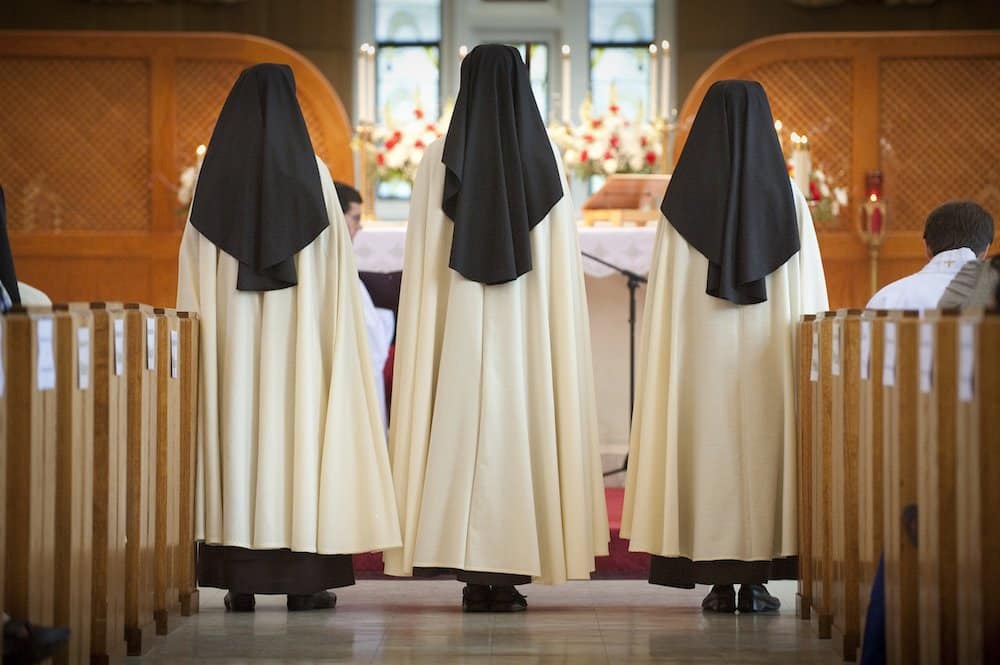
Wedding days and profession days are special days, yet the special days last only one day. The words of marital and religious vows are easy to say, but to live them every day afterward is always a challenging matter. The love behind the vows shows itself in daily fidelities. The real sign of love is to live according to the Law of the Gift each and every day afterward — even amid terrible trials and sufferings. Love proves itself most of all on the cross.
Jesus’ complete gift of self
The ultimate example of a complete gift of oneself — the model and paradigm for all married couples and consecrated persons — is Jesus Christ and him crucified. In his passion and death, Jesus Christ made a complete gift of himself to the Father and he did so on behalf of us all. He gave himself up to the Father out of love so that you and I might receive the forgiveness of our sins and the new life of grace. He did it so that you and I might be drawn by cords of love into the life of the Holy Trinity.
The Lord’s gift of himself to the Father was revealed most clearly in what is traditionally said to be the last of his seven last words on the cross: “Father, into your hands I commend my spirit” (Lk 23:46). It was a Jewish way of saying: “Father, I give myself to you completely.” In saying these words, Jesus not only gave up his life to the Father but also laid down his life for us all. Love inspired him to do it.
The love that inspired him to do it was not just any love, but the Spirit of love. Scripture says that on the cross the Lord Jesus offered himself to the Father through the eternal Spirit (cf. Heb 9:14). In the depths of his human soul, the depths of his spirit, Christ crucified was immersed in the depths of the Spirit of Love. From out of the depths of love, he offered his life, his death, his all, to the Father. It was a priestly act. Jesus Christ, our high priest, offered himself in sacrifice to the Father as expiation for the sins of us all.
Once upon a time, it was common for human beings to think of worship in terms of priestly gestures and the offering of sacrifices. Ancient Israel was not alone in thinking of worship in such terms. So, too, did all the pagans in the world around them. The phenomena of sacrificial worship have been nearly universal throughout human history.
Only in the last several centuries have human beings gradually lost sight of what sacrificial worship is and why it is necessary. It is fair to say that we have now reached a point in the West where the understanding of worship in terms of offering an actual sacrifice on an actual altar in our midst has almost vanished from our minds altogether. Yet, in the Catholic understanding of worship, that is exactly what we do at the Mass or Divine Liturgy. In every Mass or Divine Liturgy, on the very altars in our churches, we offer to the Father the one true sacrifice that saves the world — the sacrifice of Jesus Christ himself.
Catholics in our times, therefore, are in a quandary. On the one hand, we live in a world in which the understanding of worship in terms of offering an actual sacrifice to God on an altar in our midst has all but vanished. It is hard for us not to be conditioned by our cultural surroundings. On the other hand, we live in a Church in which the central act of our worship is the offering of an actual sacrifice to God on an altar in our midst every Sunday. It is hard for us not to proclaim this truth. So, how might we learn to understand anew and more deeply the meaning and the mystery of the Eucharistic sacrifice?
The Law of the Gift
The Law of the Gift is a light that points the way. What is a sacrifice? Most people think of sacrifice as an act of giving up some good or bearing some affliction for the good of another. The parents of a child who is seriously ill, for example, give up many personal comforts and conveniences of their own to spend hours with their child at the hospital. Naturally, we call that a sacrifice.
But what, exactly, is the sacrifice in their action? Is it the discomfort and inconvenience that the parents bear? Is it their pain that is the sacrifice? Or is the sacrifice really the gift of themselves to their child? The gift of themselves flows from their love. Their acts of giving up comforts and conveniences, their hours in the hospital, their acts of walking away from themselves are really just signs of their sacrifice. The sacrifice itself is principally in the loving gift of themselves to their child. The loving gift of themselves, in turn, is what brings them into their child’s presence, keeps them in their child’s presence, and grounds them in communion with their child.
Jesus’ sacrifice as a loving gift
So, too, it is with the sacrifice of Jesus Christ on the cross. The scourge, the thorns, the nails, the cross, the blood, and all the rigors of Calvary are so many signs of his sacrifice. The principal thing in Christ’s sacrifice, however, is the loving gift of himself to his Father on behalf of all sinners. The sacrifice of Christ issued from the depths of his heart, and reveals itself in all simplicity in the words: “Father, into your hands I commend my spirit.” The loving gift of himself is what opens the way for us all to come into the presence of God. It establishes a new communion of humanity with God.
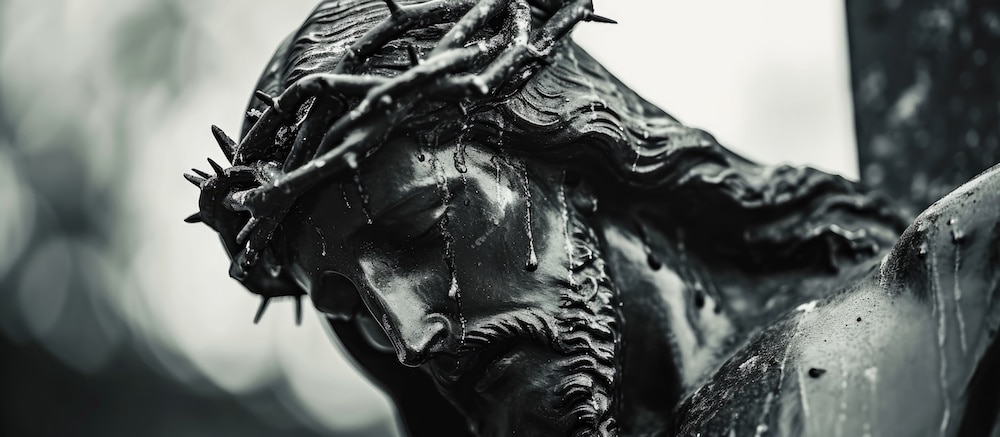
In his last word from the cross, what Jesus said in effect was this: “Father, I am yours. In life, in death, in time, in eternity, on the surface of the earth, in the depths of the abyss, in the splendors of heaven, in good times and in bad, I am yours. Forever.” In so speaking, he spoke on behalf of every human being. The question is whether you and I will accept the gift of his loving sacrifice in faith and join in his worship of the Father in the Spirit.
To the extent that you and I welcome his grace, and open our minds in faith to the Lord’s last word on the cross, you and I will come to understand once again the meaning and the mystery of sacrificial worship. You and I will come to understand personally the love of Jesus Christ.

